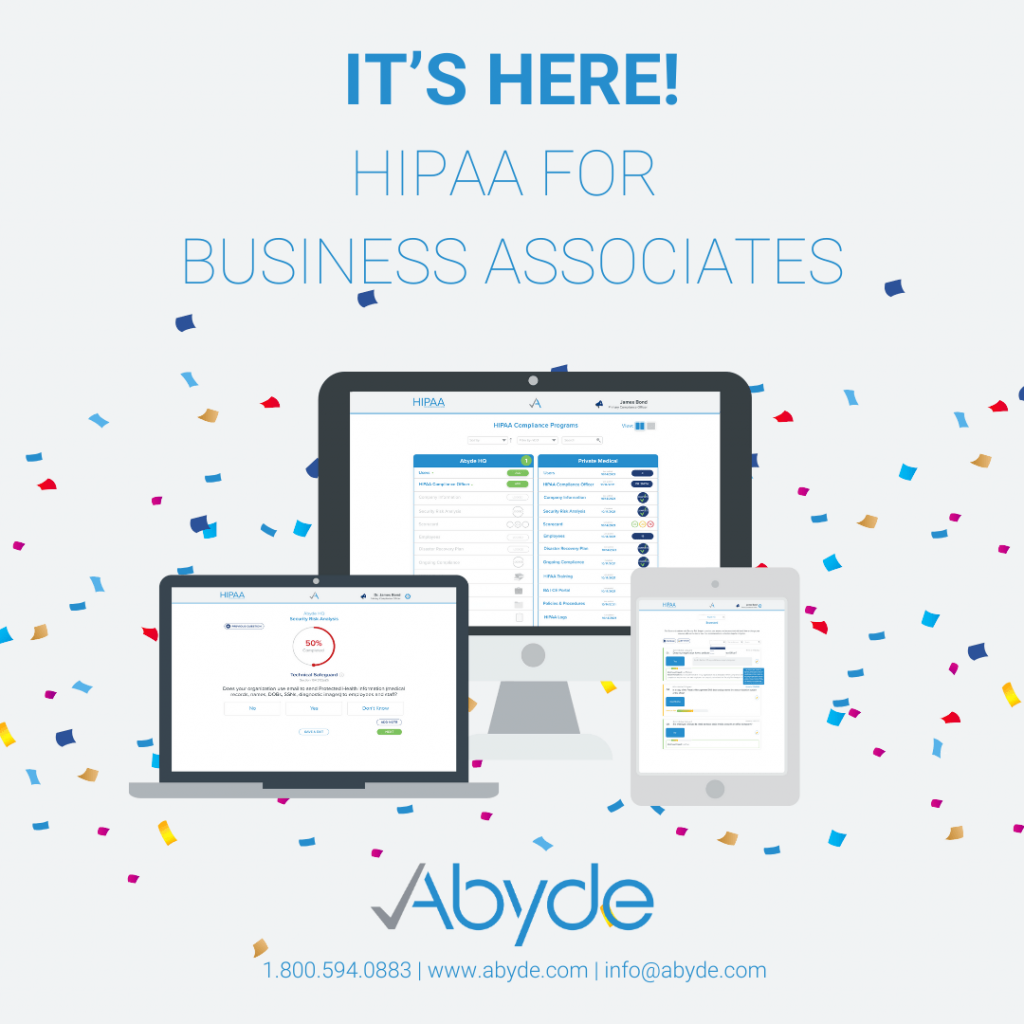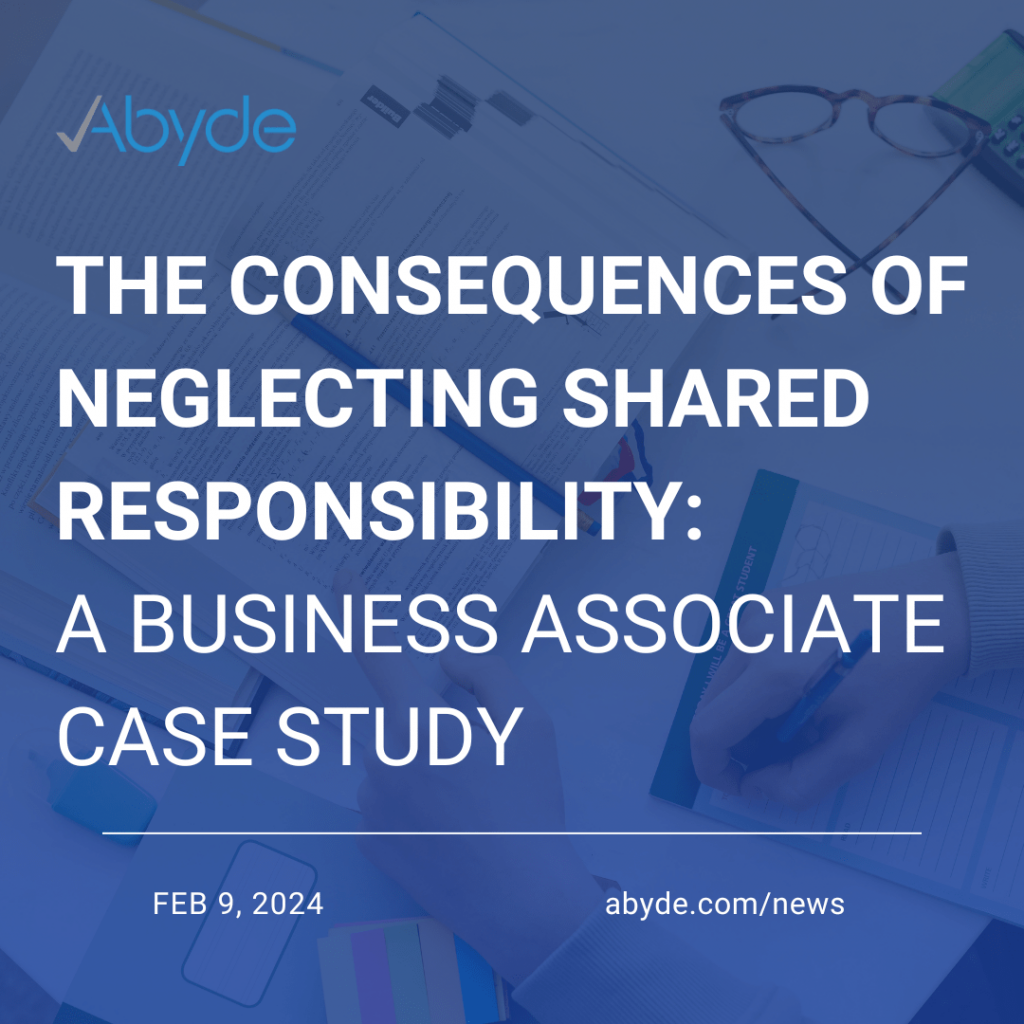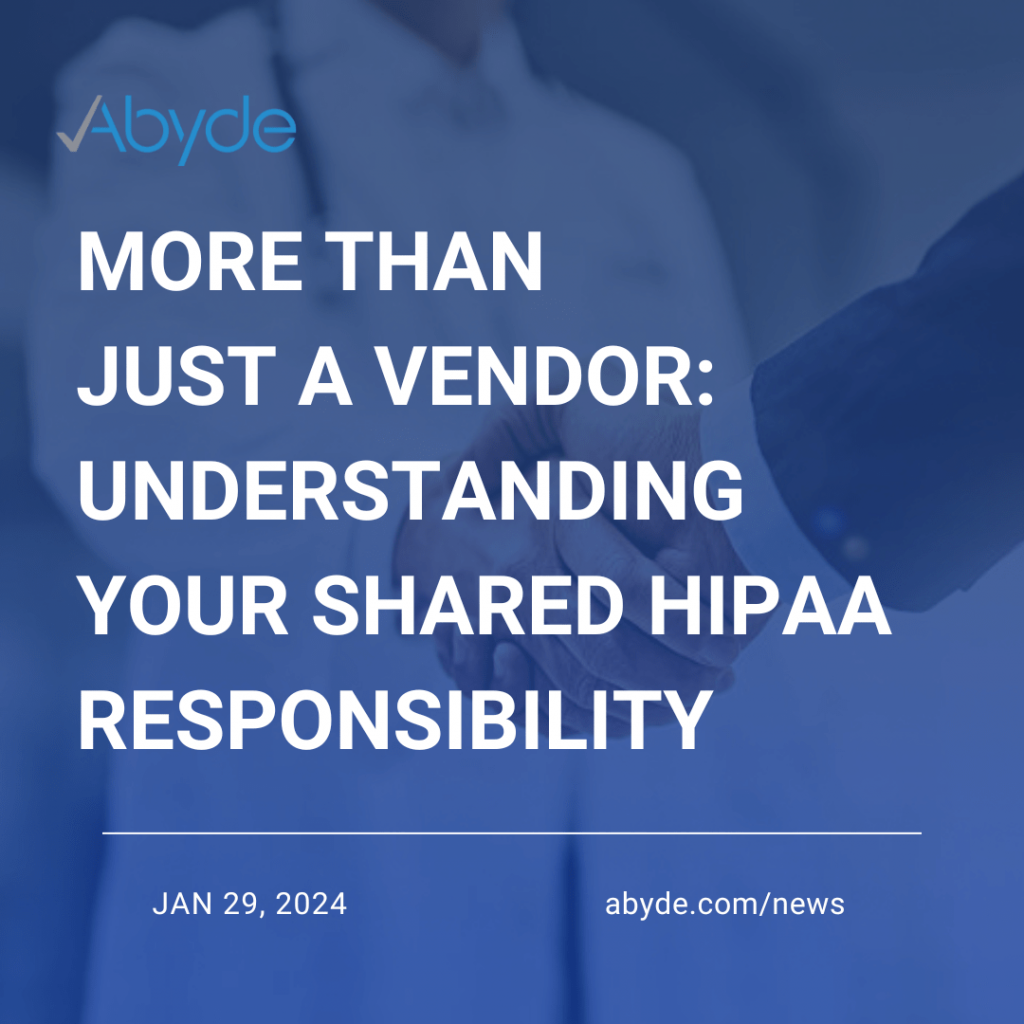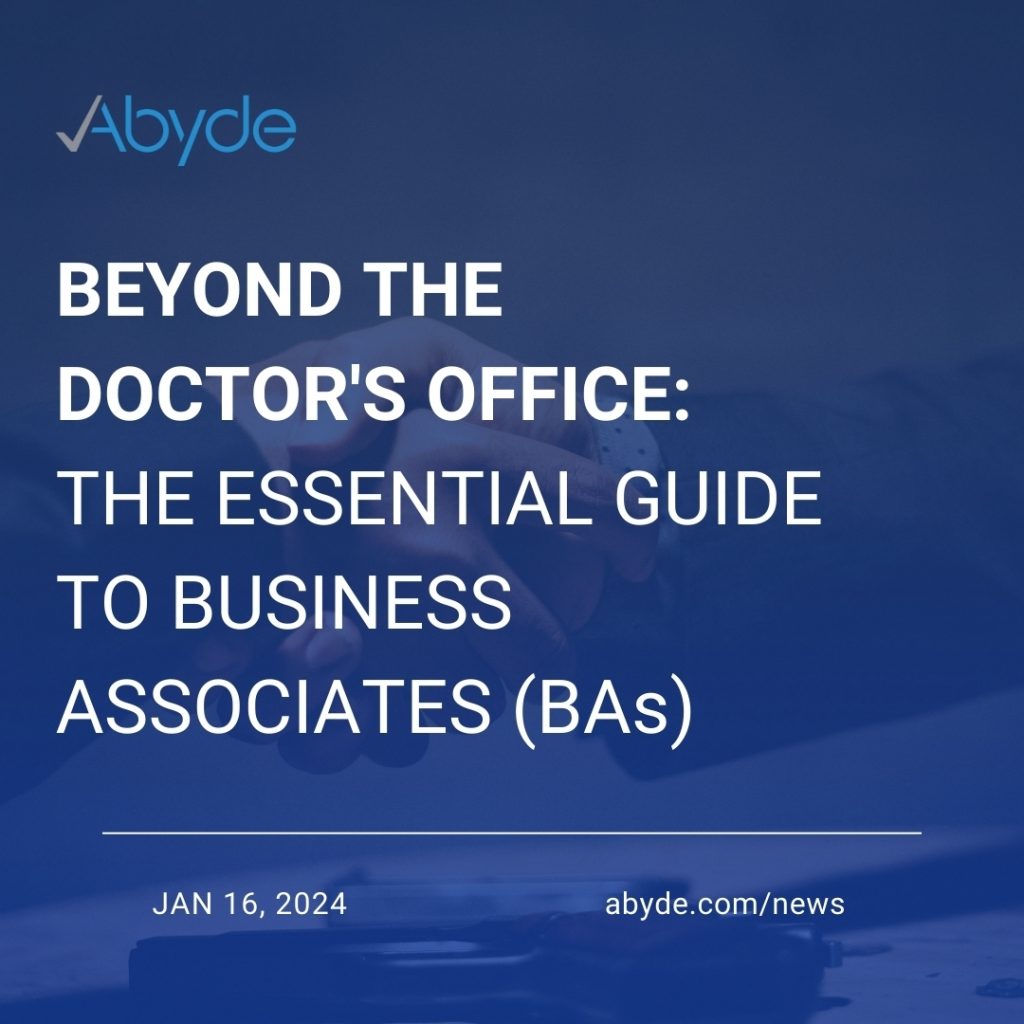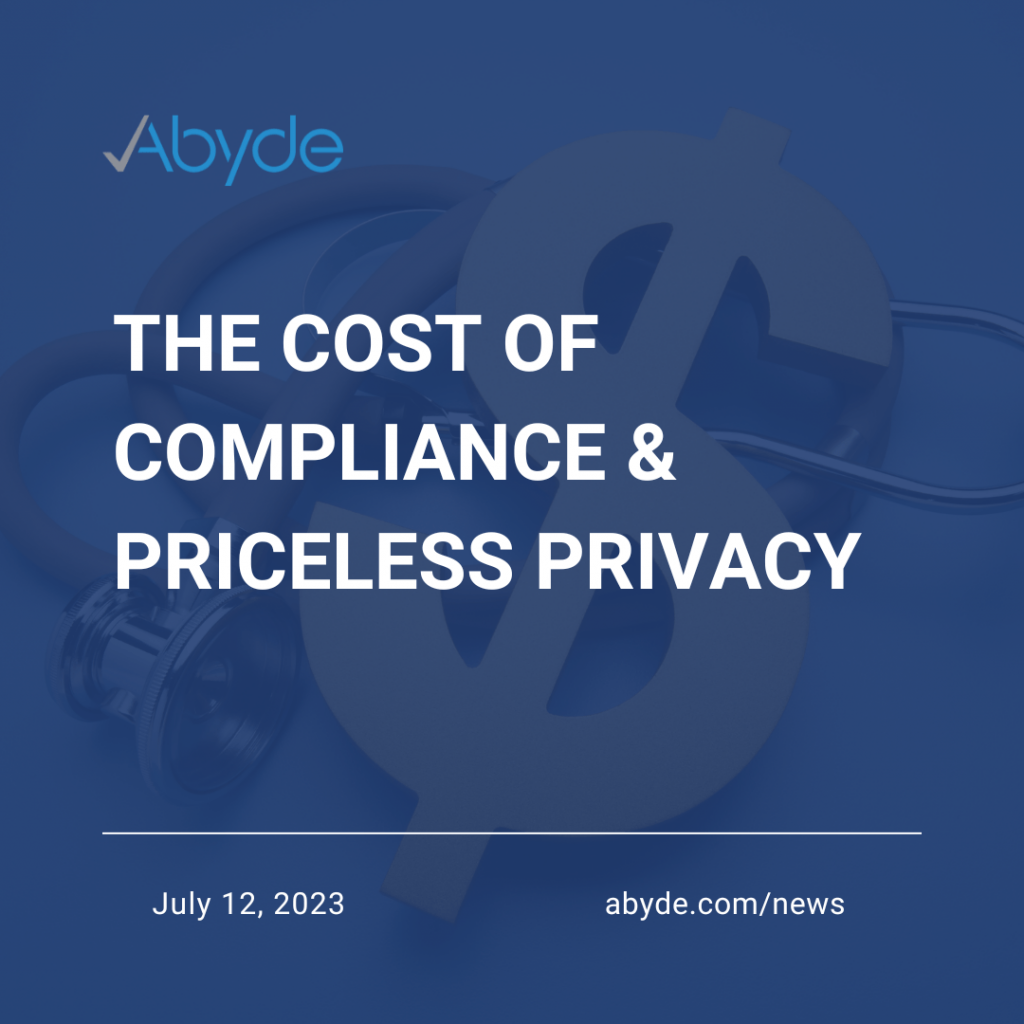February 21, 2024 While doctors, nurses, and researchers often take center stage in healthcare, there’s another critical group working tirelessly behind the scenes: medical couriers. These are the logistics ninjas, the delivery defenders, who ensure vital medical supplies, specimens, and documents reach the right place at the right time. Medical couriers go far beyond simply transporting packages. They handle protected health information (PHI) in various forms, making them subject to HIPAA compliance alongside healthcare providers and health plans. This means they share the responsibility of safeguarding patient privacy and security. Key Responsibilities in Compliance: HIPAA Compliance: A Shared Responsibility Healthcare providers rely on Business Associate Agreements (BAAs) to establish clear expectations and obligations for couriers regarding HIPAA compliance. These agreements outline: The Impact of Compliance: Effective HIPAA compliance by medical couriers benefits everyone: The Future of Couriers and Compliance The future of medical courier services might involve drones and autonomous vehicles for faster deliveries. However, the core responsibilities – data security, adherence to regulations, and understanding the impact on patient privacy – will remain central to their role as HIPAA business associates. Medical couriers are no longer just delivery personnel; they are crucial partners in ensuring healthcare compliance and safeguarding patient privacy. By understanding their critical role and responsibilities, we can appreciate their impact on a healthier and more secure healthcare system. For medical couriers and Business Associates in general, Abyde is your compliance solution. With our newest software, HIPAA for Business Associates, BAs can manage compliance with ease. HIPAA for BAs includes a robust security risk analysis, training for BAs, automated policies and procedures, dynamically generated Business Associate Agreements for Covered Entities and Sub-Business Associates, and much more. To learn more, email hipaa-ba@abyde.com and schedule an educational consultation here.
Abyde Launches HIPAA for Business Associates Software: Simplifying Compliance for Business Associates in Healthcare
February 19, 2024 CLEARWATER, FLORIDA, UNITED STATES, February 19, 2024 /EINPresswire.com/ — Abyde, a leading healthcare compliance software company, today announced the launch of its HIPAA for Business Associates software, a cloud-based solution designed to streamline compliance for organizations working with protected health information (PHI). The healthcare industry relies heavily on Business Associates (BAs) for various tasks, from claims processing to data analytics. However, navigating the complexities of HIPAA regulations can be challenging and time-consuming for BAs of all sizes. Abyde’s new solution addresses this concern by providing a user-friendly, comprehensive toolkit for BA compliance. “We understand the challenges Business Associates face in ensuring HIPAA compliance,” says Matt DiBlasi, President and CEO of Abyde. “Our HIPAA for Business Associates solution is designed to alleviate those burdens by simplifying the process and empowering these organizations to focus on their core business.” Key Features and Benefits: Intuitive Security Risk Analysis: Quickly identify and prioritize potential vulnerabilities with automated assessments. Interactive Training: Engage employees with compliance modules tailored to their roles and responsibilities. Dynamically Generated Policies and Procedures: Get customized policies and procedures built to meet your specific needs and industry standards. BA and Covered Entity (CE) Portal: Facilitate seamless document exchange with Covered Entities and Sub-Business Associates. Abyde Drive: Securely store and manage documents within the software (not including PHI). Additional Features: Incident management, breach incident report logs, and ongoing regulatory updates. Benefits for Business Associates: Reduced risk of non-compliance: Ensure ongoing adherence to HIPAA regulations and avoid costly penalties. Improved efficiency: Automate tasks and streamline workflows for a more efficient compliance process. Enhanced organization: Store and access documents with Abyde drive. Increased employee engagement: Foster a culture of compliance with interactive training and clear policies. Scalability: Adapt Abyde to your specific needs and grow with your business. Availability and Pricing:HIPAA for Business Associates is available starting today, Monday, February 19th, 2024. Abyde offers pricing plans to accommodate the needs of businesses of all sizes. Schedule a demo today to learn more. About Abyde:Abyde is a leading healthcare compliance software company dedicated to empowering organizations to navigate the complexities of compliance. With its suite of cloud-based solutions, Abyde makes compliance more accessible, efficient, and cost-effective. For more information, visit www.abyde.com. Contact: Penny SchweitzerAbyde+1 800-594-0883pschweitzer@abyde.comVisit us on social media:FacebookTwitterLinkedInInstagramYouTube
IT in the White Coat: The Crucial Role of IT Companies in Healthcare
February 12, 2024 The medical field is undergoing a digital revolution, and IT companies are more than just the folks building all the fancy gadgets. They’re putting on virtual white coats and becoming Business Associates (BAs), working hand-in-hand with healthcare providers. But this isn’t just about cool tech – it’s about protecting something crucial: your health information. So, what exactly do BAs do? The Health Insurance Portability and Accountability Act (HIPAA) defines BAs as any person or entity that creates, receives, transmits, or maintains protected health information (PHI) on behalf of a covered entity, such as a hospital or health insurance provider. This means IT companies involved in tasks like: Responsibilities and Actions: Becoming a BA comes with a significant responsibility to comply with HIPAA regulations. Here’s what IT companies, as BAs, must do: Beyond Compliance: Building Trust and Value: While compliance is paramount, IT companies can go beyond the minimum requirements and truly become valuable partners in healthcare. Here are some ways: The Future of IT in Healthcare: The future of healthcare is digital, and IT BAs are the key to keeping it safe and secure. By embracing their responsibilities and working together, they can ensure that technology not only revolutionizes healthcare, but also protects what matters most – the health and safety of patients. To learn more about our IT partners, click here. To learn more about how to keep your IT organization compliant, email info@abyde.com and schedule a compliance consultation here.
The Consequences of Neglecting Shared Responsibility: A Business Associate Case Study
February 9, 2024 The world of healthcare data is complex, with numerous players responsible for safeguarding sensitive patient information. While doctors and hospitals are at the forefront, Business Associates (BAs) also play a critical role in HIPAA compliance. From marketing firms to IT organizations, any entity handling protected health information (PHI) for a Covered Entity (CE) becomes a BA, entrusted with a dual mission: serving clients and ensuring data security. Abyde has written a case study on the consequences of Business Associates neglecting their shared responsibility. The case of Doctors’ Management Services (DMS) serves as a stark reminder of the consequences of avoiding BA responsibilities. In April 2017, a ransomware attack compromised the PHI of over 200,000 patients, putting them at risk. Shockingly, DMS discovered the breach over a year later, failing to implement basic security measures and promptly report the incident. This resulted in a $100,000 fine – the first-ever HIPAA penalty related to ransomware – and three years of corrective action under OCR monitoring. The key takeaways are clear: Here’s how Abyde can help BAs navigate HIPAA compliance with ease: We have a new software launching soon focused on assisting Business Associates achieve HIPAA compliance. Our software is revolutionizing, and it: Don’t wait to become the next cautionary tale. Choosing Abyde’s HIPAA for BA software demonstrates your commitment to compliance excellence. Read the entire case study here. For more information on how your organization can achieve compliance, email info@abyde.com and schedule an educational consultation here.
BA Blunders: Lessons From Major Fines Given to BAs
February 6, 2024 Hey there, privacy protectors! Abyde here, your friendly neighborhood compliance champion, dropping some serious knowledge about Business Associate (BA) blunders. You know, those slip-ups that land you in hot water with HIPAA? Not a fun time at all. Here are some major lessons that BAs can learn from to ensure they continue to uphold their shared responsibility of protecting patient data. Proactive security is key: Assuming your company is immune to threats can lead to costly mistakes. Doctors’ Management Services faced this harsh lesson when they were part of a cyber attack and their files, which included protected health information, were infected with ransomware. DMS didn’t realize their files were affected for over a year. This infection isn’t something that can be quickly cured, with hacking organizations demanding money in exchange for access to files. The DMS’s delayed reactionary response teaches BAs what not to do. The DMS did not have an updated security risk assessment, policies and procedures in place, or security systems in place to be prepared for this ransomware attack. The OCR fined them a pretty penny, $100,000, for their negligence. This lesson was also the first fine based on a ransomware attack. Secure all servers: All protected health information, or PHI, a Business Associate interacts with, needs to be properly secure. While this seems obvious, BAs have learned this lesson the tough way, like MedEvolve’s $350,000 fine. MedEvolve had PHI online on an easily accessible server. This publicly accessible server included information like patient names, billing addresses, and even social security numbers. A similar fine also occurred to iHealth Solutions, an IT organization that did not properly secure access to a server that contained the PHI of over 250 patients. This mistake cost the company $75,000. Set up remote deletion of PHI: When working in a business, numerous devices have access to PHI. It is imperative to ensure data can be quickly wiped if these devices get into the wrong hands. A perfect example of this lesson was one learned by the Catholic Health Care Services of the Archdiocese of Philadelphia, which was fined $650,000. There was a theft of a CHCS employee’s phone that contained PHI. This phone had access to extensive PHI, including, social security numbers, diagnoses and treatments and patients’ families. Due to this stolen device, and no proactive measures to mitigate the detrimental impacts of theft, the CHCS was heavily fined and had to be monitored for two years. These fines may grab headlines, but the true cost goes beyond money. Breaches erode patient trust, damage reputations, and hinder the security of healthcare. Remember, BAs play a vital role in safeguarding sensitive information, and non-compliance has far-reaching consequences. While these fines serve as expensive lessons, Abyde is here to simplify compliance for your organization. Learn more about what it means to be a compliant Business Associate by emailing info@abyde.com and scheduling an educational consultation here.
More Than Just a Vendor: Understanding Your Shared HIPAA Responsibility
January 29, 2024 As a Business Associate (BA) in the medical field, you’re not just another cog in the machine – you’re a HIPAA hero, wielding the power to safeguard patient data and build trust within the healthcare ecosystem. You’re entrusted with access to Protected Health Information (PHI) while providing services to a covered entity, such as a hospital, health plan, or healthcare provider. This PHI can include everything from patient names and demographic information to diagnoses, treatment plans, and billing records. Think of yourself as a data guardian, a digital knight protecting the kingdom of PHI: But fear not, HIPAA hero! You’re not alone in this noble quest. We, at Abyde, are your trusty sidekick, and we will soon be offering the tools and support with our new software to turn compliance into your superpower. The software will provide: Remember, HIPAA compliance isn’t just a legal obligation, it’s a noble cause. By joining forces with Abyde, you can transform from “just a vendor” to a data defender, a patient advocate, and a true HIPAA hero. Ready to unleash your inner hero? Contact Abyde today at info@abyde.com and schedule a consultation here to get started! P.S. No cape required (but bonus points if you do).
The Truth Behind Teamwork: Choosing the Right Sub-Business Associate
January 26, 2024 At Abyde, we know that the medical world isn’t all scalpels and stethoscopes. It’s a whirlwind of paperwork, regulations, and let’s remember, actual patients needing top-notch care. That’s where trusty Business Associates (BAs) step in, taking care of billing, document disposal, IT services, and more, ensuring that medical staff can focus on patients. But even reliable Business Associates need to find the right medical Sub-Business Associates. Unsure what that entails? Don’t worry, Abyde has you covered! By seeking the right skills and qualities in Sub-Business Associates, and nurturing a supportive work environment, you can build a powerful team that elevates your organization to new heights. A reliable and skilled Sub-Business Associate is an investment in your success, ensuring the smooth operation and exceptional care that defines your commitment to patients. If you want to learn more about choosing the right sub-business associates, email us at info@abyde.com and schedule a consultation here.
Beyond the Doctor’s Office: The Essential Guide to Business Associates (BAs)
January 16, 2024 In the healthcare world, data privacy reigns supreme. That’s where the Health Insurance Portability and Accountability Act (HIPAA) comes in, safeguarding sensitive patient information known as protected health information (PHI). But HIPAA’s reach extends beyond hospitals and doctors’ offices. Enter the business associate (BA): a vital player in the healthcare ecosystem, yet often shrouded in mystery. So, who exactly are BAs? Imagine a bustling healthcare landscape. Hospitals outsource billing services to companies, pharmacies rely on data analytics firms, and insurers partner with cloud storage providers. All these entities, if handling PHI, become BAs under HIPAA. In simpler terms, a BA is any person or organization that performs certain functions or activities involving PHI on behalf of a covered entity (healthcare providers, health plans, and clearinghouses). BAs sometimes are field-specific, like optometrists having eyeglass labs and OCT manufacturers. Dentists also have BAs like dental labs and equipment providers. Think of BAs as the supporting cast in the HIPAA play. They handle crucial tasks behind the scenes, ensuring smooth healthcare operations while keeping patient data secure. But with great responsibility comes great accountability. BAs are bound by the same HIPAA regulations as covered entities, meaning they must: Why are BAs important? BAs play a critical role in the healthcare industry’s efficiency and innovation. They allow covered entities to focus on patient care while outsourcing non-core activities. But more importantly, BAs contribute to a robust system of PHI protection, ensuring patient privacy and trust. The BA landscape is constantly evolving. With the rise of telehealth and cloud computing, new types of BAs are emerging. This highlights the need for ongoing education and awareness about BA responsibilities to maintain robust HIPAA compliance across the healthcare spectrum. Remember: Whether you’re a seasoned healthcare professional or a curious outsider, understanding BAs is crucial for navigating the complex world of HIPAA. By demystifying their role and responsibilities, we can work together to build a stronger, more secure healthcare system for everyone. So next time you hear the term “BA”, remember: they’re not just business associates; they’re essential allies in safeguarding patient privacy and ensuring a healthy future for HIPAA compliance. If you have any other questions on business associates, email us at info@abyde.com, or set up an educational consultation with one of our compliance experts.
The Cost of Compliance & Priceless Privacy
July 12, 2023 In a world where data privacy is paramount, and breaches make headlines faster than the speed of light, there’s a heavyweight champion ruling the healthcare industry—HIPAA (Health Insurance Portability and Accountability Act). While its intentions to protect patient data are noble, we often overlook the less glamorous side of HIPAA: the significant financial burden it imposes on healthcare providers. What’s worse? The cost of noncompliance. 1. The H for “Hefty”: When it comes to the cost of HIPAA, the first letter of the acronym seems to stand for “Hefty.” Implementing the necessary administrative, technical, and physical safeguards to protect patient data can be a financial mountain to climb. From implementing secure IT systems to training staff and conducting regular audits, healthcare providers find themselves pouring precious resources into HIPAA compliance. 2. Compliance: The Ultimate Budget Sinkhole: While maintaining patient privacy is crucial, it’s no secret that HIPAA compliance can drain the pockets of even the most financially prepared institutions. Investing in updated technology, encryption, firewalls, and secure storage systems can cost an arm, a leg, and a few digits from your credit card pin. Suddenly, the “HIPAA” acronym takes on a new meaning: “Hazardously Intricate Price for Administrative Assurance.” 3. The Cost of the Inevitable “Oops”: Despite the best precautions, data breaches can still rear their ugly heads. The cost of mitigating the aftermath of a breach can send chills down the spines of healthcare providers. In addition to the financial implications, there’s the added toll on reputation, patient trust, and potential lawsuits. So, while HIPAA compliance can be expensive, the cost of non-compliance and its consequences is an even more bitter pill to swallow. 4. Training: The Education of Expensive Minds: To stay compliant with HIPAA regulations, healthcare providers must educate their staff on privacy policies and procedures. However, the cost of training programs, workshops, and seminars can feel like a merciless attack on your budget. With every mandatory training session, the price tag keeps growing. So, remember, when you’re shelling out for HIPAA compliance, you’re also investing in a future where your staff knows their way around patient privacy like a seasoned secret agent. 5. The Silver Lining of Investing in Privacy: While the cost of HIPAA compliance might seem overwhelming, it’s crucial to remember the underlying purpose of these regulations. HIPAA aims to protect patient data from falling into the wrong hands, ensuring their privacy and security. Ultimately, the investment in HIPAA compliance is an investment in patient trust, confidentiality, and the overall integrity of the healthcare industry. The cost of HIPAA compliance can indeed be a bitter pill to swallow for healthcare providers. From the financial burdens of implementing robust systems and training programs to the potential aftermath of data breaches, it’s a financial journey that requires careful navigation. However, it’s essential to view this investment as an opportunity to reinforce patient trust and safeguard sensitive information. So, while the price tag might be hefty, the benefits of HIPAA compliance far outweigh the cost. To alleviate the challenges and costs associated with HIPAA compliance, healthcare providers often seek the assistance of specialized compliance solutions. Abyde understands the complexities of HIPAA and offers a comprehensive suite of tools to simplify compliance processes. With our user-friendly platform, healthcare providers can navigate the intricacies of HIPAA regulations without breaking a sweat (or the bank). By leveraging Abyde’s services, practices can automate various compliance tasks, such as risk assessments, custom policy creation, employee training, and incident response. The Abyde all-in-one solution is designed to streamline the compliance journey, reducing the time and financial investments required. Practices can benefit from personalized support and up-to-date resources to stay ahead of the ever-evolving regulatory landscape. By partnering with a trusted compliance partner like Abyde, organizations can focus on delivering quality care while maintaining the highest standards of data privacy and security. Remember, when it comes to HIPAA, the price of privacy is priceless.
When & Why You Need a Business Associate Agreement
April 20, 2021 We’ve all heard the saying ‘sharing is caring’ but sometimes doing a good deed could actually steer you into some consequences later down the road. Let’s say, for example, you just loaned your car to your best bud whose “quick trip to the store” actually consisted of running red lights and racking up parking tickets. Though you might not have been the one in the driver’s seat – your name will be the one on all of the lovely fines that wind up in your mailbox, not your BFF’s. Now you’re probably wondering where we’re going with all of this. And while cars and protected health information (PHI) might not have a whole lot in common, it goes to show how certain situations in life require additional precautions to minimize the risk of being responsible for another’s wrongful actions. This idea rings especially true when it comes to working with and sharing something as valuable as sensitive health information. HIPAA law provides a pretty specific roadmap for how your practice should be safeguarding PHI and outlines certain standards that if not met – could result in a hefty fine. But with all the government requirements, advancements in technology, and changing patient needs – it’s impossible today to run a practice without the help of third-party vendors. So whether it be an outside medical billing company, IT support, or document shredding company – any vendor that comes into contact with PHI is a business associate (BA) of your practice and requires their own set of directions for proper handling. Just as covered entities have obligations under HIPAA law, so do business associates – with one of the most important being a documented and signed Business Associate Agreement (BAA). A BAA is essentially a written agreement between your organization and the business associate, specifying each party’s responsibilities when accessing and maintaining PHI and it offsets the liability so that your practice can take a backseat if any incidents were to occur. As you probably wouldn’t hand over your keys to just anyone without laying down some ground rules first, the same goes for providing access to patients’ sensitive health information. Like most contracts, the terms and conditions in a proper BAA can be pretty lengthy and may vary based on the type of vendor you’re working with – but here are some of the basic HIPAA requirements that should be outlined: Permitted uses and disclosures of PHI Specific safeguards that the BA is expected to establish Breach Notification requirements Policies and procedures for providing PHI access at your practice’s or patient’s request Business Associate Training requirements Guidelines for how PHI should be returned or destroyed upon termination of the BAA Meeting all the requirements for what should be included in a BAA is just the first stretch of the drive, and something we’re often asked is, “What if one of my vendors refuses to sign?” Given the fact that having a signed BAA with all vendors you work with is a HIPAA requirement, it’s probably a good idea to put the brakes on any working relationship with a vendor who can’t agree to your terms and conditions. Just last year a medical practice found itself a victim of a HIPAA hit and run after filing a breach report stating that their EHR company was blocking access to the practices’ ePHI in exchange for $50,000 to be paid by the practice. While it might seem pretty obvious that the business associate was the driving force of the incident, because there was no BAA in place – the $100,000 in damage fell solely on the provider. A Business Associate Agreement not only lays out the rules of the road for how PHI should be handled but holds the BA directly liable for any non-compliance that happens when they’re behind the wheel. Having a proper agreement in place with each and every vendor you work with ensures that they’re best protecting your patients’ PHI and means that your practice can steer clear of the hefty HIPAA fines if they don’t.

